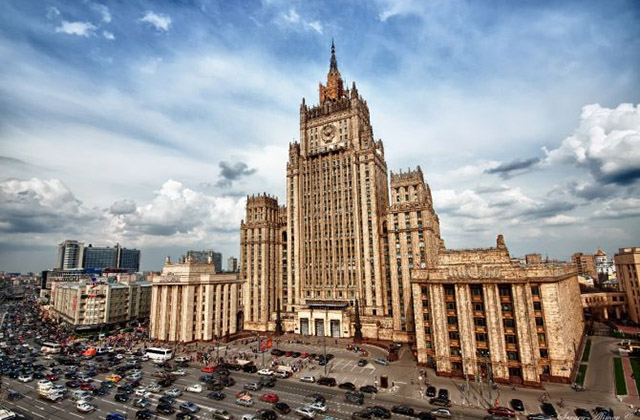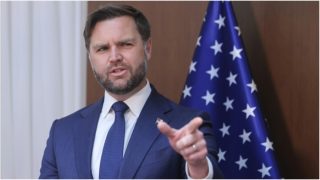Russian Foreign Ministry: Pashinyan’s statement can cause nothing but alienation

The Russian Foreign Ministry believes that the address of Armenian Prime Minister Nikol Pashinyan dated September 24, 2023 contains “unacceptable attacks against Russia and can cause anything but alienation.” The Russian Foreign Ministry said in a statement.
“There is an attempt to relieve oneself of responsibility for failures in domestic and foreign policy, shifting the blame to Moscow. The latest sententia of N. V. Pashinyan confirm our earlier conclusions that processes inspired by the West and spurred on by official Yerevan, destructive processes for our own country and our allied relations, are not episodic, but systemic in nature.
The head of government, in fact, admitted that all this time the republic was being deliberately prepared for a turn away from Russia. Their steps, designed to set a new – Western – vector for the development of Armenia, are unconvincingly justified by alleged mistakes on the part of the Russian Federation and the CSTO. At the same time, it is forgotten that our states have largely similar interests in matters of security and development, and the United States and other NATO countries have set as their goal not only to inflict strategic damage on Russia, but also to destabilize our common Eurasian space.
Russia has always been faithful to its allied obligations, respected Armenian statehood and never confronted the republic with a choice: with us or against us. Moscow has provided and continues to provide large-scale assistance to fraternal Armenia in the areas of security, economics and culture. In the fall of 2020, the efforts of the Russian Federation and President V. V. Putin personally made it possible to prevent the complete defeat of Armenia. If N. V. Pashinyan had agreed to a truce weeks earlier, the loss would have been less severe.
Finally, the self-sacrificing activity of Russian peacekeepers in Nagorno-Karabakh (NK), sometimes at the cost of their own lives, is a direct confirmation of Russia’s continued commitment to fulfilling its extremely difficult mission in the interests of achieving peace between the Azerbaijani and Armenian peoples, which Pashinyan chose to remain silent about.
Our country, despite increasingly frequent signals about the creation of artificial difficulties for Russian companies in the republic, is invariably pursuing a course of increasing economic and investment ties with Armenia both bilaterally and within the framework of the Eurasian Economic Union. Today, they demonstrate record dynamics, contributing to the impressive growth of the Armenian economy and the well-being of citizens.
Russia firmly stands in favor of strengthening a common cultural and educational space with Armenia, despite the attempts of individual Armenian representatives to slow down the progress of mutually beneficial projects in the humanitarian sphere.
In regional affairs, Pashinyan – instead of honoring the gentleman’s agreement of the leaders of Russia, Azerbaijan and Armenia from November 2020 to leave the issue of the status of Nagorno-Karabakh to future generations – succumbed to the exhortations of the West. In Prague and Brussels, he decided to act based on the Alma-Ata Declaration of 1991, recognizing the sovereignty of Azerbaijan over Nagorno-Karabakh. This fundamentally changed the conditions under which the trilateral statement of November 9, 2020 was signed, as well as the position of the Russian peacekeeping contingent. Due to the shortsightedness of the Armenian leadership, it was not possible to implement a number of agreements in the field of strengthening the security of Armenia; in particular, Pashinyan did not sign the decision already agreed upon by all foreign ministers of six countries to send a CSTO observation mission to the regions of the republic bordering Azerbaijan.
The situation was also heated by official Yerevan’s persistent denial of the continued presence of Armenian armed forces in NK after November 9, 2020, which became one of the key reasons for the latest September escalation. The agreement reached through the mediation of the Russian peacekeeping contingent on September 20 on the withdrawal of the remaining Armenian units and the complete disarmament of the ՛Nagorno-Karabakh Defense Army՛ with the removal of heavy equipment and weapons revealed the real picture and created the preconditions for sustainable de-escalation.
Largely because of the inconsistent position of the Armenian leadership, which preferred to shy away and run to the West over rhythmic work together with Russia and Azerbaijan, the implementation of a set of trilateral agreements at the highest level for 2020-2022 has stalled. Precious time was lost, during which significant progress could have been made in terms of agreeing on a peace treaty, delimiting the border and unblocking regional communications, which would have become additional security factors for Armenia. It is also noteworthy that at the aforementioned Prague and Brussels meetings under the auspices of the European Union, the Prime Minister of Armenia, while recognizing the territorial integrity of Azerbaijan, did not remember the rights and security of the Karabakh Armenians. Even today, we do not see any strong interest in official Yerevan in helping to solve pressing problems in NK – i.e. creating favorable conditions for observing the ceasefire, improving the humanitarian situation, and establishing a sustainable dialogue between Baku and Stepanakert.
This irresponsible approach of Pashinyan’s team caused understandable discontent among part of the Armenian society, which was expressed in popular protests. Of course, allegations that they were inspired by Russia have nothing to do with reality. The head of the Armenian government should be well aware that Moscow does not deal with such things – unlike the West, which is quite skilled in organizing ‘color revolutions’, but by a strange coincidence chose not to notice the numerous facts of persecution of protesters by the authorities in Yerevan. At the same time, as is well known, the U.S. Ambassador maintains close contacts with the government. Against this background, clearly at the instigation of the authorities, a real anti-Russian bacchanalia has unfolded in the Armenian media.
We are convinced that the Yerevan leadership is making a huge mistake, by deliberately trying to destroy the multifaceted and centuries-old ties between Armenia and Russia and making the country a hostage to the geopolitical games of the West. We are confident that the overwhelming majority of the Armenian population is also aware of this.”

























